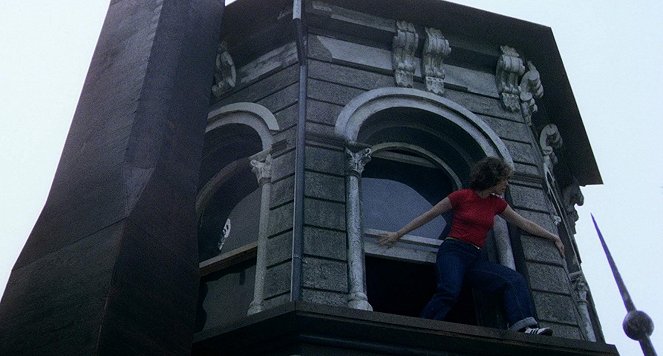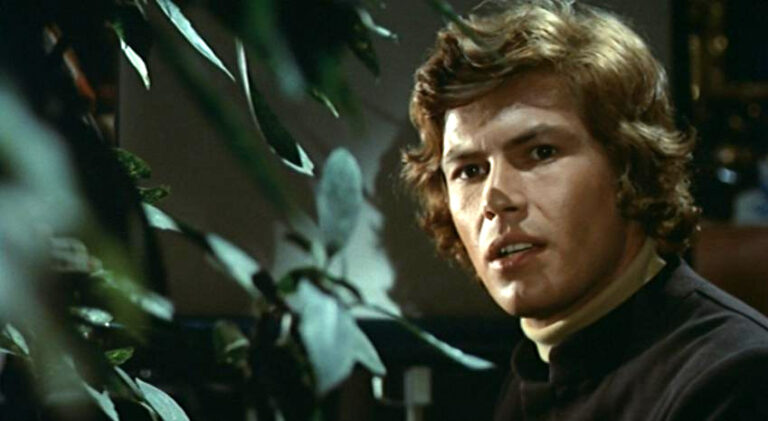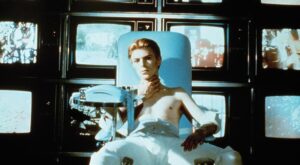– Twentieth Century is the movie for the weekend. In this section every Saturday or Sunday Celluloid Dimension picks a movie for the weekend. The selections are preferably underrated movies or neglected movies that we think should get more attention. Have fun with these recommendations. –
Directed by Howard Hawks
Written by Ben Hecht and Charles MacArthur
Starring:
- John Barrymore as Oscar Jaffe
- Carole Lombard as Lily Garland (formerly Mildred Plotka)
- Walter Connolly as Oliver Webb
- Roscoe Karns as Owen O’Malley
- Ralph Forbes as George Smith
Rating: ![]()
Howard Hawks’ maniacal 1934 feature film revels in the madness of the entertainment business and the insanity of its egocentric members. This hysterical pre-code production – released two months before the reinforcement of the puritanical Hays Code – about the toxic relationship of a possessive, histrionic impresario with a stage superstar he discovered may be the least Hawksian in style among the versatile filmography of the exceptional American director, but the unhinged humor nonetheless resonates like his most ambitious adventures. It is a character film made by a filmmaker extremely skilled at character direction; the scenography carelessness – unabashedly peripheral throughout the drama – leaves in exalted saliency the actors’ protagonism as the single storytelling vehicle. Let’s just say that in Hawksian parlance, despite the less than expressive stylistic calculation, the classicism implemented here remains just as refined and unique as in his most successful screwball comedy excursions. Particularly, Howard Hawks has his priorities in place in this uproariously funny production, effectively grasping the most hilarious nuances of the madcap dramaturgy of the script written by Ben Hecht and Charles MacArthur based on a 1932 play, leaving on display an overdramatized range of campy performances to take charge of the theatrical enormity of the comedy. John Barrymore plays egomaniacal impresario Oscar Jaffe, a fiery and indomitable showman. Carole Lombard plays the gorgeous and capricious Lily Garland, a stage actress discovered and instructed by Jaffe.
The hilarious thing about this unmissable duo -both are a firecracker of outrageous screams- is the striking parallels they share in purely superficial aspects; their egos are so proudly inflated that solving their romantic and professional predicaments is a utopia. Like any satirical battle of the sexes, masculinity has its codes and femininity has its rules, and that collision of biological differences facilitates the acting dynamics, consolidating sequences that elicit unbridled guffaws from us thanks to the verisimilitude of their belligerent personalities and gestural exaggeration. Cleverly, the film is packed with surprises at referential levels, which not only reach individual proportions within the acting spectrum but also reach the media with which they manifest themselves. The rowdy plot is a deliberately grotesque portrayal of the self-centeredness that surrounds the modus vivendi of superstars. It is not, however, a film with caustic proclivities; it is inoffensively amusing, more elegantly self-critical than harshly critical. And as I specified a short while ago, the plot is not reserved to be exclusively satirical just with its characters but also with the milieu that shapes them and the solipsism that engulfs them. The theater is caricatured but the cinema is analogously lampooned. Ironically, Jaffe refers to cinema contemptuously while the hermetic theatricality of the mise-en-scène mocks the theater and its idiosyncrasies.
Every allusive feature is there to give it thematic uniformity. It is fundamentally a prototypical screwball comedy, laying many of the structural foundations of this eccentric form of comedy that became fashionable in the 1930s. Although the quirks embodied by the characters share dramatic aspects with some of the more chaotic personalities that would later be seen, no one, no character matches Jaffe and Lily’s degree of lunacy. John Barrymore’s hyper-gestural, over-the-top performance is mind-blowing, a plethora of goofy vampiric gesticulations with the ferocity of a schizophrenic. Furthermore, the wondrous Carole Lombard is simply flawless, aptly irritating and noisy. It is the comedy of mayhem par excellence, most of the film is set on a train, where our two beloved wacky protagonists are not the only loud-mouthed, neurotic loquacious people on board, every character on that train is crazier than the other. And Hawks perfectly exhausts this limited, frugal set-up with cunning and creativity, containing in it one of the most ebullient, bracing comedies of all time.









